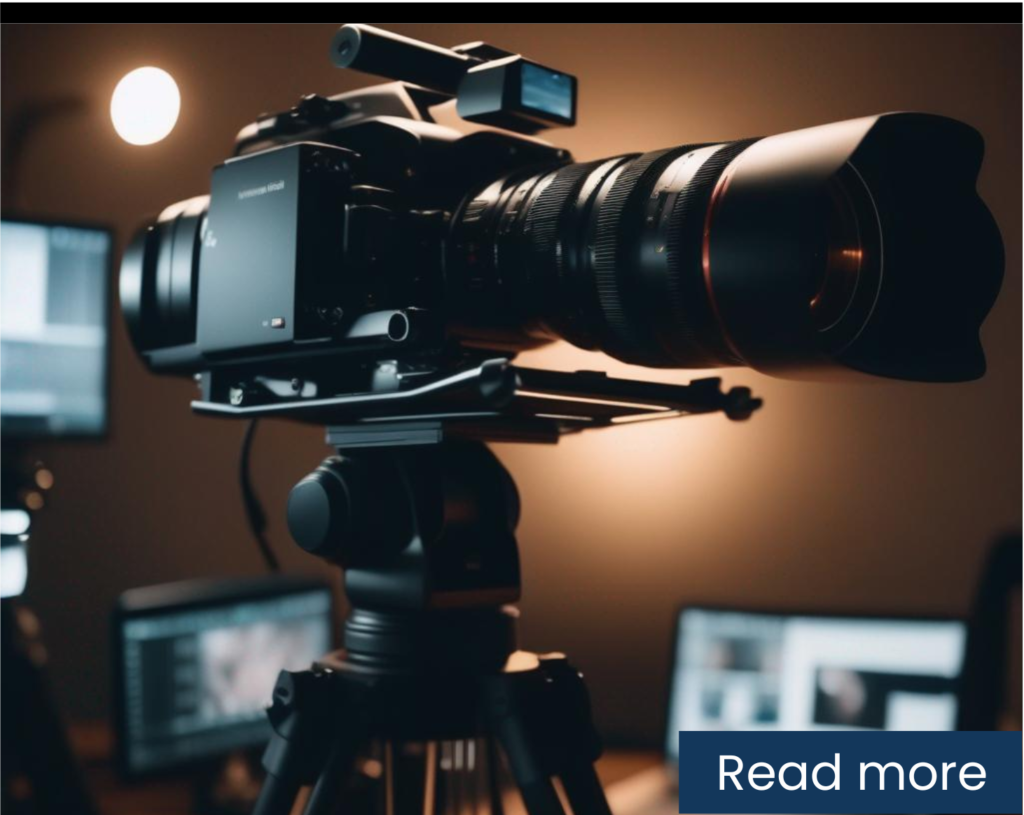
Mental and Emotional Health
"Let's Learn, Explore, and Connect to the World"
Exploring the Link Between Social Media and Mental Health: What You Need to Know
- Patricia Santos
- Mental and Emotional Health
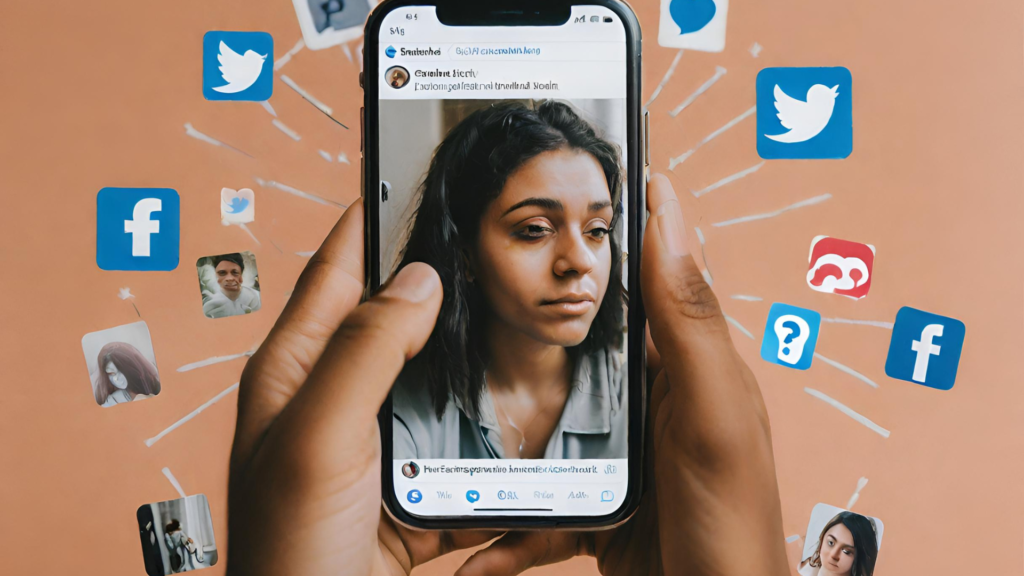
Introduction
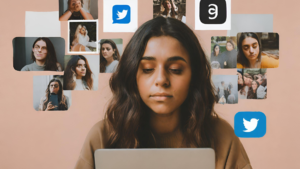 In the digital era, social media has woven itself into the fabric of daily life, becoming an indispensable tool for communication, entertainment, and information. Platforms like Facebook, Twitter, Instagram, and TikTok have revolutionized how we connect with others and significantly influenced cultural, political, and personal landscapes. Social media is a platform with an undeniable omnipresence as billions of users log in daily. However, as its influence grows, so does the scrutiny over its impact on users’ mental health. The debate is ongoing and complex, with researchers, psychologists, and users divided over social media’s benefits and drawbacks. This post examines the complex correlation between mental health and social media use, providing knowledge, research discoveries, and useful tips for managing the online world without impacting mental wellness. By unraveling the various aspects of this subject, we strive to uncover the ways in which social media impacts our mental state and how we can develop a better relationship with these channels, promoting better overall mental health. Understanding this link is crucial, not only for individual users but for society as a whole, as we move forward in an increasingly connected world.
In the digital era, social media has woven itself into the fabric of daily life, becoming an indispensable tool for communication, entertainment, and information. Platforms like Facebook, Twitter, Instagram, and TikTok have revolutionized how we connect with others and significantly influenced cultural, political, and personal landscapes. Social media is a platform with an undeniable omnipresence as billions of users log in daily. However, as its influence grows, so does the scrutiny over its impact on users’ mental health. The debate is ongoing and complex, with researchers, psychologists, and users divided over social media’s benefits and drawbacks. This post examines the complex correlation between mental health and social media use, providing knowledge, research discoveries, and useful tips for managing the online world without impacting mental wellness. By unraveling the various aspects of this subject, we strive to uncover the ways in which social media impacts our mental state and how we can develop a better relationship with these channels, promoting better overall mental health. Understanding this link is crucial, not only for individual users but for society as a whole, as we move forward in an increasingly connected world.
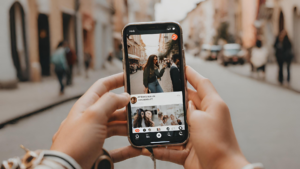 In the age of social media, billions of people connect and share daily. While these platforms offer undeniable benefits like connection and entertainment, concerns are rising about their impact on mental health. This article explores the complex relationship between social media and mental health, providing tips for navigating the online world without sacrificing your well-being.
In the age of social media, billions of people connect and share daily. While these platforms offer undeniable benefits like connection and entertainment, concerns are rising about their impact on mental health. This article explores the complex relationship between social media and mental health, providing tips for navigating the online world without sacrificing your well-being.
The Rise of Social Media
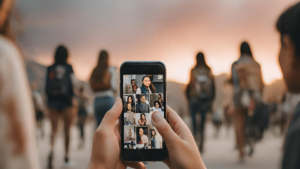
The journey of social media from its nascent stages to becoming a global phenomenon is nothing short of remarkable. The evolution began in the late 1990s and early 2000s with sites like Six Degrees and Friendster, which laid the groundwork for the social networking revolution. These platforms introduced the concept of creating personal profiles and connecting with friends online, setting the stage for future innovations in digital socialization. The subsequent launch of Facebook in 2004 marked a pivotal moment, transforming social media into a ubiquitous presence in our lives. Today, with the advent of platforms like Instagram, Twitter, and TikTok, social media has diversified, catering to varied interests and forms of expression.
Current statistics highlight the staggering extent of social media’s reach, with over 4.5 billion people around the world actively using these platforms. This represents more than half of the global population, a testament to social media’s integral role in modern communication. These platforms have not only reshaped how we connect with others but have also become vital tools for business, activism, and entertainment. They offer unprecedented opportunities for individuals to share their lives, opinions, and talents with a global audience, fostering communities and movements that transcend geographical boundaries.
The way we communicate and our perception of ourselves and the world around us have been greatly impacted by the escalation of social media. Society has been transformed by this phenomenon. Its impact is multifaceted, serving as a tool for empowerment and connection while also posing challenges and questions about privacy, authenticity, and mental well-being. As we delve deeper into the relationship between social media and mental health, it’s essential to consider this historical context and the profound influence these platforms wield in our daily lives.
Understanding Mental Health
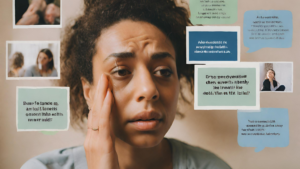 Mental health, a critical component of overall wellness, encompasses our emotional, psychological, and social well-being. The advent of social media has brought about a significant change in the way we communicate and perceive the world around us, thereby transforming society as we know it. Despite its importance, mental health often remains shrouded in stigma, making it a subject many are reluctant to discuss openly. This silence can prevent individuals from seeking the help and support they need, exacerbating conditions that could otherwise be managed or treated.
Mental health, a critical component of overall wellness, encompasses our emotional, psychological, and social well-being. The advent of social media has brought about a significant change in the way we communicate and perceive the world around us, thereby transforming society as we know it. Despite its importance, mental health often remains shrouded in stigma, making it a subject many are reluctant to discuss openly. This silence can prevent individuals from seeking the help and support they need, exacerbating conditions that could otherwise be managed or treated.
An individual’s mood, thought processes, and daily functioning can be influenced by common mental health issues such as anxiety, depression, bipolar disorder, and post-traumatic stress disorder (PTSD). Each of these disorders has its own set of symptoms. Anxiety and depression, for example, can lead to persistent feelings of worry or sadness, affecting an individual’s ability to work, study, eat, sleep, and enjoy life. Despite the prevalence of these conditions—millions worldwide suffer from mental health issues—they often go unrecognized or untreated due to lack of awareness, access to care, or the stigma attached to admitting one struggles with mental health.
 In recent years, there has been a growing movement to destigmatize mental health issues, with public figures, organizations, and individuals advocating for open discussions, increased funding for mental health services, and greater access to care. Social media, while a double-edged sword, has played a significant role in this shift, offering platforms where people can share their experiences, find community, and access information and support. Understanding the fundamental aspects of mental health is the first step in exploring its complex relationship with social media, highlighting the need for a balanced approach to digital consumption for the sake of our psychological well-being.
In recent years, there has been a growing movement to destigmatize mental health issues, with public figures, organizations, and individuals advocating for open discussions, increased funding for mental health services, and greater access to care. Social media, while a double-edged sword, has played a significant role in this shift, offering platforms where people can share their experiences, find community, and access information and support. Understanding the fundamental aspects of mental health is the first step in exploring its complex relationship with social media, highlighting the need for a balanced approach to digital consumption for the sake of our psychological well-being.
Mental health, a crucial part of overall wellness, refers to our emotional, psychological, and social well-being. Common mental health issues include anxiety, depression, and bipolar disorder. If you think you might be struggling with a mental health condition, it’s important to reach out for help.
Connecting the Dots: Social Media and Mental Health
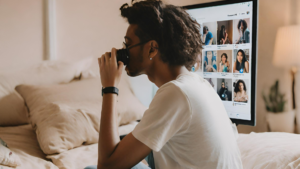 The relationship between mental health and social media is a complex issue, where studies shed light on the diverse effects these networks have on our psychological state, highlighting both beneficial and detrimental outcomes. On the positive side, social media offers unparalleled opportunities for connectivity, allowing individuals to maintain relationships across distances, find communities of support, and access a wealth of informational resources. For many, these platforms are a space for self-expression and identity exploration, offering a sense of belonging and validation. Awareness campaigns and support communities on social media platforms have been pivotal in reducing the stigma around mental health, offering people the knowledge and motivation necessary to pursue assistance.
The relationship between mental health and social media is a complex issue, where studies shed light on the diverse effects these networks have on our psychological state, highlighting both beneficial and detrimental outcomes. On the positive side, social media offers unparalleled opportunities for connectivity, allowing individuals to maintain relationships across distances, find communities of support, and access a wealth of informational resources. For many, these platforms are a space for self-expression and identity exploration, offering a sense of belonging and validation. Awareness campaigns and support communities on social media platforms have been pivotal in reducing the stigma around mental health, offering people the knowledge and motivation necessary to pursue assistance.
Yet, the link between social media and mental health isn’t entirely positive. An increasing amount of studies highlight the negative consequences of too much social media use, such as heightened levels of stress, depression, and isolation. A major issue is the culture of comparison driven by sites like Instagram and Facebook, where viewing others’ curated life highlights can provoke feelings of insufficiency and low self-worth in viewers. The obligation to maintain an impeccable online persona can also lead to anxiety and stress, especially in teenagers and young adults who are more vulnerable to social approval.
 Another point of concern is how social media affects sleep. Screen-emitted blue light can interfere with regular sleep patterns, and the compelling draw of these platforms frequently leads to prolonged use before bedtime, exacerbating sleep quality issues. Inadequate sleep quality is acknowledged as a factor in numerous mental health conditions, such as depression and anxiety.
Another point of concern is how social media affects sleep. Screen-emitted blue light can interfere with regular sleep patterns, and the compelling draw of these platforms frequently leads to prolonged use before bedtime, exacerbating sleep quality issues. Inadequate sleep quality is acknowledged as a factor in numerous mental health conditions, such as depression and anxiety.
Moreover, cyberbullying and online harassment pose serious problems on these platforms, with those affected experiencing various emotional issues, including stress, anxiety, and in extreme cases, thoughts of suicide. The anonymous and detached environment of the internet may encourage individuals to engage in harmful behaviors that they would normally avoid in person, creating a toxic online climate.
 Nonetheless, it’s critical to understand that the interaction between social media and mental health is intricate and varies greatly among individuals and how they use these platforms. For example, passive use (merely observing without interaction) is often associated with worse mental health outcomes, while active participation (engaging with content and users) might have beneficial effects. This complex relationship highlights the need for cautious social media usage and further investigation to thoroughly understand these effects.
Nonetheless, it’s critical to understand that the interaction between social media and mental health is intricate and varies greatly among individuals and how they use these platforms. For example, passive use (merely observing without interaction) is often associated with worse mental health outcomes, while active participation (engaging with content and users) might have beneficial effects. This complex relationship highlights the need for cautious social media usage and further investigation to thoroughly understand these effects.
The Role of Social Media Algorithms
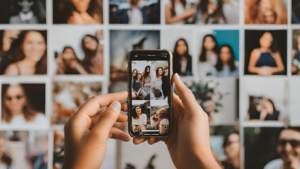
The algorithms powering social media platforms are designed to capture and retain user attention, often with profound effects on our emotions and behaviors. These algorithms analyze user interactions, preferences, and activity patterns to curate and present content they predict will be most engaging. While this can enhance user experience by tailoring content to individual interests, it also raises concerns about the psychological impact of such personalized feeds.
One significant issue is the echo chamber effect, where algorithms filter and present information that aligns with a user’s existing beliefs potentially limiting exposure to diverse perspectives and reinforcing pre-existing views. This can contribute to polarization and heightened emotional responses, particularly in the context of political or social issues. Moreover, the pursuit of engagement can lead to the prioritization of sensational or emotionally charged content, which may exacerbate feelings of anxiety, anger, or sadness.
The addictive nature of social media is another consequence of algorithmic design. Features like infinite scrolling and notification badges exploit human psychological vulnerabilities, encouraging continuous platform use. This can lead to excessive screen time, disrupting real-life interactions, physical activity, and sleep—all critical components of mental health. The dopamine-driven feedback loops associated with likes, comments, and shares can also mimic the effects of addictive substances, making it difficult for users to disengage.
Furthermore, algorithms can inadvertently promote harmful content, including disinformation, extreme dieting practices, or self-harm, which can have dire consequences for vulnerable users. Although platforms are increasingly implementing measures to mitigate these risks, the challenge of balancing user engagement with mental health considerations remains significant.
Grasping the function of social media algorithms is essential for users aiming to use these platforms thoughtfully. By recognizing the mechanisms behind content curation and its potential impact, individuals can take steps to mitigate negative effects, such as diversifying their sources of information, setting time limits on usage, and engaging in digital detoxes.
Navigating Social Media Mindfully
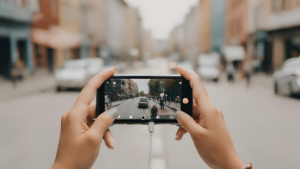 In an age where digital connectivity is ever-pervasive, cultivating a mindful approach to social media usage is essential for maintaining mental health. While social media platforms offer numerous benefits, their impact on our well-being largely depends on how we engage with them. Here are strategies to ensure a healthier relationship with social media:
In an age where digital connectivity is ever-pervasive, cultivating a mindful approach to social media usage is essential for maintaining mental health. While social media platforms offer numerous benefits, their impact on our well-being largely depends on how we engage with them. Here are strategies to ensure a healthier relationship with social media:
1. Be Intentional with Your Use: Start by asking yourself why you’re reaching for your phone or logging onto a social media site. Are you looking for connection, boredom relief, or news? Setting clear intentions can help steer your online interactions towards more fulfilling and less harmful patterns.
2. Limit Your Time: Excessive social media use can lead to feelings of inadequacy and anxiety. Utilize built-in screen time tracking features or third-party apps to monitor and set limits on your daily or weekly social media use. Establishing specific times of day for checking social media can also prevent it from overwhelming your day.
3. Curate Your Feed: Actively manage your social media environment to ensure it’s a source of positive inspiration and information. Follow accounts that make you feel good about yourself and unfollow or mute those that trigger negative emotions. This conscious curation can significantly enhance the quality of your online experience.
4. Engage Actively, Not Passively: Shift from passively scrolling through feeds to actively engaging with content that resonates with you. Commenting, sharing, and participating in discussions can create a more interactive and positive social media experience.
5. Practice Digital Detoxes: Regularly schedule times when you disconnect from digital devices and social media. This can be certain hours of the day, weekends, or designated “no-tech” vacations. These breaks are crucial for mental refreshment and offer opportunities for real-life connections and activities.
6. Seek Meaningful Connections: Use social media to enhance, not replace, real-world interactions. Prioritize face-to-face time with friends and family, and use digital tools to stay connected with distant loved ones in a meaningful way.
Implementing these tactics can reduce the negative impact of social media on mental health, resulting in a more harmonious and fulfilling online experience.
Conclusion
 As we navigate the complexities of the digital age, the link between social media and mental health emerges as a critical area of concern and study. Our exploration reveals a nuanced landscape where the benefits of connectivity and community coexist with challenges such as anxiety, depression, and disrupted self-esteem. Acknowledging the two-sided character of social media is the initial move in cultivating a more positive engagement with these networks.
As we navigate the complexities of the digital age, the link between social media and mental health emerges as a critical area of concern and study. Our exploration reveals a nuanced landscape where the benefits of connectivity and community coexist with challenges such as anxiety, depression, and disrupted self-esteem. Acknowledging the two-sided character of social media is the initial move in cultivating a more positive engagement with these networks.
Encouragingly, by employing mindful engagement strategies—such as limiting usage, curating feeds, and prioritizing real connections—we can mitigate negative impacts while enhancing the positive aspects of our online experiences. Moreover, the responsibility for promoting mental health-friendly environments does not rest solely with users. Social media companies must also continue refining their algorithms and policies to support user well-being, emphasizing the importance of ethical considerations in technological advancement.
 In closing, the conversation about social media and mental health is ongoing, reflecting broader societal shifts toward recognizing and valuing mental wellness. By approaching social media with intentionality and mindfulness, we can harness its potential for good, making our digital lives a source of support, inspiration, and connection. As we move forward, let us remain committed to balancing our online and offline lives, ensuring that our engagement with social media enriches rather than detracts from our overall well-being.
In closing, the conversation about social media and mental health is ongoing, reflecting broader societal shifts toward recognizing and valuing mental wellness. By approaching social media with intentionality and mindfulness, we can harness its potential for good, making our digital lives a source of support, inspiration, and connection. As we move forward, let us remain committed to balancing our online and offline lives, ensuring that our engagement with social media enriches rather than detracts from our overall well-being.
By using social media mindfully and prioritizing mental health, we can reap the benefits of online connection without sacrificing our well-being. Let’s strive for a healthy balance in our digital lives.
References
- Robinson, G. (n.d.). The Intersection of Social Media and Mental Health. Download. Podbean. https://www.podbean.com/site/EpisodeDownload/PB11D6AB5J3J6N
- Why Social Media Makes You Feel Bad. (n.d.). Discover More. https://ccp.net.au/why-social-media-makes-you-feel-bad/
- The Power of Social Media: How It Shapes Our Lives. (n.d.). Newsfilter.info. https://isohunt.me/the-power-of-social-media-how-it-shapes-our-lives/
- Exploring the Relationship Between Social Media and Mental Health. (n.d.). PLR Free Downloads | Free PLR ebook & Free PLR articles. https://plrfreedownloads.com/exploring-the-relationship-between-social-media-and-mental-health/
- How Does Social Media Affect Our Happiness? (n.d.). XtendedView. https://xtendedview.com/social-media/social-media-affect-our-happiness/10059/
Reading comprehension quiz
Check out our books and more!
Comic Collections : A Compilation of Daily Professional and Casual Conversations (Book 3)
Discover the joy of conversation with “Comic Collections: A Compilation of Daily Professional and Casual Conversations,” a whimsically illustrated comic book that transforms talking into an adventure. Ideal for those eager to polish their chatting skills, this light-hearted guide is a trove of insights presented in a uniquely entertaining format.
Check out our Blogs!
Read our everyday blogs and expand your knowledge about English and Video Editing here in SEKAEL.
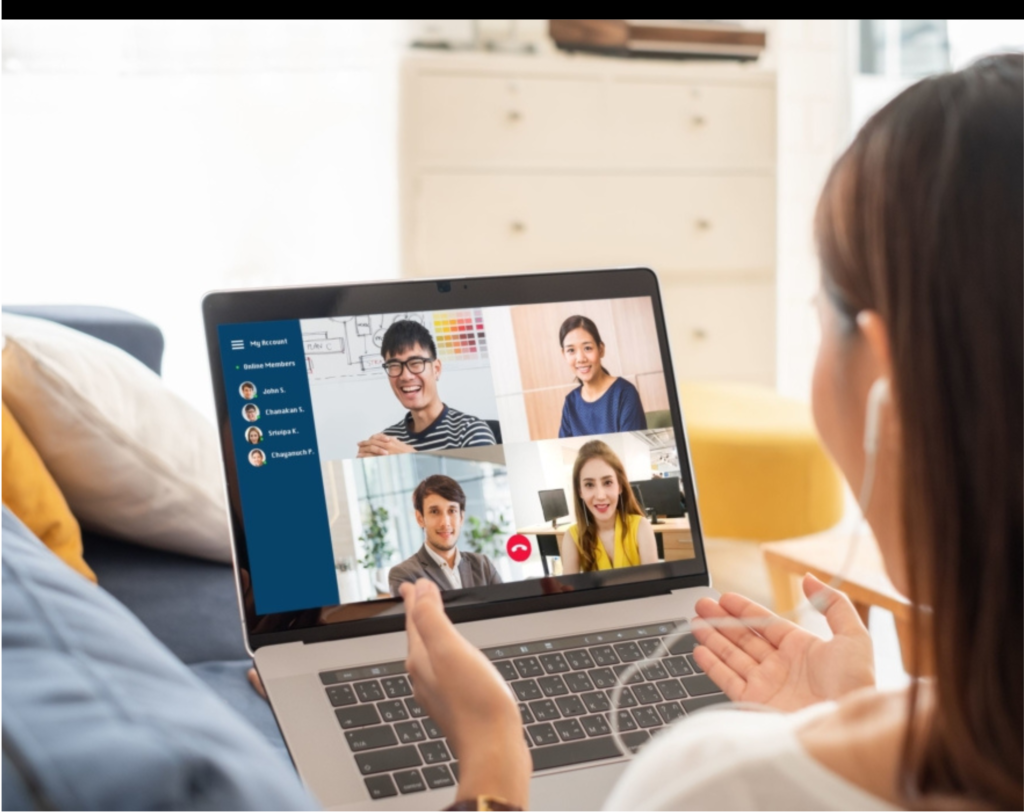

Learn through Basic English Grammar Blogs by widening your English vocabulary and learning English Grammar.
